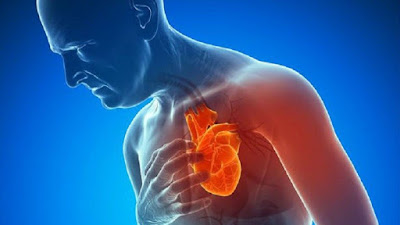If You See Blood In Your Poop – You Should Read THIS
Blood in the stool signifies that there is bleeding occurring somewhere in the gut lining. Sometimes the quantity of blood is so insignificant that the detection is possible only by a fecal occult test (which is a test for untraceable blood in the excreta). At other times, it may noticeable on toilet paper or in the toilet bowl after a bowel movement as red colored blood. Bleeding that occurs in the upper areas of the digestive lining may make stool appear dark and tarry.
A person having blood in the excreta may be unaware of bleeding and might not have experienced any symptoms. They may also have a stomach ache, vomiting, muscle weakness, breathing difficulty, diarrhea, heart fluttering, unconsciousness, and weight reduction varying on the cause, location, duration, and acuteness of the bleeding.
What causes rectal bleeding?
Although rectal bleeding is fairly commonplace, only about a fraction of those affected actively seek treatment. Symptoms usually escalate rapidly, and most causes are treatable and benign. In some select cases, bleeding from the rectal region might be a symptom of a serious disease, such as colorectal cancer. Hence, all rectal bleeding should be promptly reported to the health care provider. He or she can perform a rectal examination or order medical tests like a colonoscopy to pinpoint the actual cause of the bleeding.
Rectal bleeding can be caused by:
• hemorrhoids
• inflammatory bowel disease (IBD)
• ulcers
• colon cancer
Treatment may include simple solutions that can be easily done. This includes consuming a fiber rich diet to alleviate constipation that can cause and worsen anal fissures, and hemorrhoids and having a warm bath to soothe fissures.
Aloe Vera Juice
Aloe vera juice helps hasten the healing and recovery of intestinal bleeding. It palliates gut inflammation, heals open wounds, increases tissue suppleness and has antiviral qualities. The juice must be transparent and taste like distilled water (not bitter). It should be free of any additives or preservatives (such as carrageenan), and the laxative component aloin must be removed. Drinking up to 1/4 cup 2 to 3 times a day on an empty stomach is recommended.
Coenzyme Q10
Coenzyme Q10 (CoQ10) is a potent antioxidant that reduces free radical damage and increases tissue repair and regeneration. The recommended dose is 30 to 60 mg per day. Absorption is hugely increased if taken with a cold-pressed oil containing omega-3 essential fatty acids.
Omega 3s
Fish oil supplements, cold-pressed flax seed oil, and hemp seed oil all contain omega-3 essential fatty acids – anti-inflammatories that have been very useful in treating inflammatory bowel disorders. An excellent blend of these oils (along with vitamin E, evening primrose oil, and other beneficial cold-pressed oils) called Udo’s Oil is highly recommended.
At least 1 tablespoon (4 to 6 capsules) of essential fatty acids in either fish oil or flax oil form is recommended each and every day. Up to 8 tablespoons of Udo’s or flax oil or 18 capsules of fish oil daily (6 capsules, 3x/day with food) is to be taken as tolerated. Extra oils need not be taken if on the IBD Remission Diet, as you’ll already be adding Udo’s oil or flax oil to your shakes.
Though the treatment of blood in stools varies depending on the cause, there are some simple home remedies that can help you to stop and treat this problem. It is crucial to avoid and treat recurring constipation problem. You should thus ensure that your diet is rich in fiber and consume plenty of fresh green vegetables, fruits, and fruit juices. Avoid processes flour, opting instead for whole wheat flour. Drinking a glass of water first thing every morning is helpful in clearing the system regularly.
You can also mix dry ginger powder and dry senna leaves powder and put 5 gm of this mix in a glass of lukewarm water and drink this before sleeping. For external hemorrhoids, you should drink a glass of buttermilk with some salt and back pepper powder daily till the problem is cured. You can also eat ½ tsp of sesame seeds with some butter, or apply a poultice prepared with sesame seeds on this affected region. It is important to have a regular bowel movement, so try and set a routine and never suppress nature’s call. Apart from this, you should avoid consuming stimulants such as tea, coffee, alcohol and tobacco in any form. A healthy lifestyle, with a balanced diet, regular exercise and adequate rest and low-stress levels helps to avoid this problem.



